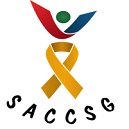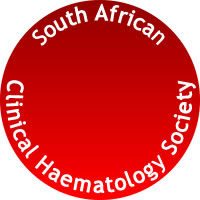Original Research
The University of Cape Town’s paediatric cancer database: Results from the first years (2019–2021)
Submitted: 12 March 2022 | Published: 24 August 2022
About the author(s)
Alan Davidson, Department of Paediatrics and Child Health, Faculty of Health Sciences, University of Cape Town, South Africa; and, Haematology/Oncology Service, Red Cross War Memorial Children’s Hospital, Cape Town, South AfricaJennifer Moodley, Cancer Research Initiative, Faculty of Health Sciences, University of Cape Town, Cape Town, South Africa
Komala Pillay, Department of Anatomical Pathology, Faculty of Health Sciences, University of Cape Town, Cape Town, South Africa
Marc Hendricks, Department of Paediatrics and Child Health, Faculty of Health Sciences, University of Cape Town, South Africa; and, Haematology/Oncology Service, Red Cross War Memorial Children’s Hospital, Cape Town, South Africa
Annemie Stewart, Clinical Research Centre, Faculty of Health Sciences, University of Cape Town, Cape Town, South Africa
Jeannette Parkes, Department of Radiation Medicine, Faculty of Health Sciences, University of Cape Town, Cape Town, South Africa
Abstract
Background: The paediatric oncology multidisciplinary team at the University of Cape Town (UCT) developed a research-ready data set.
Aim: This study aimed to describe the early results detailing the epidemiological profile of childhood cancer patients and evaluated factors associated with presentation and outcome.
Setting: The UCT paediatric oncology platform at the Red Cross War Memorial Children’s Hospital (RCWMCH) and Groote Schuur Hospital (GSH).
Methods: A REDCap database was developed with a Cancer Association of South Africa (CANSA) grant. A database administrator consented all new patients and recorded demographic and social information.
Results: There were 212 children consented from 2019 to 2021: 109 girls and 103 boys. The age range was from 1 day to 15.98 years, with a median of 5.18 years. Only 32 (15%) of these families had medical insurance, 34 (16%) lived in informal housing and 25 (12%) did not have access to piped water. Seventy-four families (35%) reported a relative with cancer, including seven first degree relatives. With a median follow-up of 12.4 months, the estimated 2-year overall survival (OS) and event-free survival (EFS) was 77% and 72%, respectively. Overall survival was significantly different (p = 0.013) by disease group, varying from 100% for Wilms tumour and germ cell tumours to 52% for rhabdomyosarcoma. Most patients with solid tumours (72%) had advanced disease at diagnosis. Outcomes were poorer for children living in informal housing and without piped water.
Conclusion: A real-time database can provide a research-ready data set for interrogating cohort-specific factors impacting childhood cancer outcomes.
Keywords
Metrics
Total abstract views: 1708Total article views: 2318



